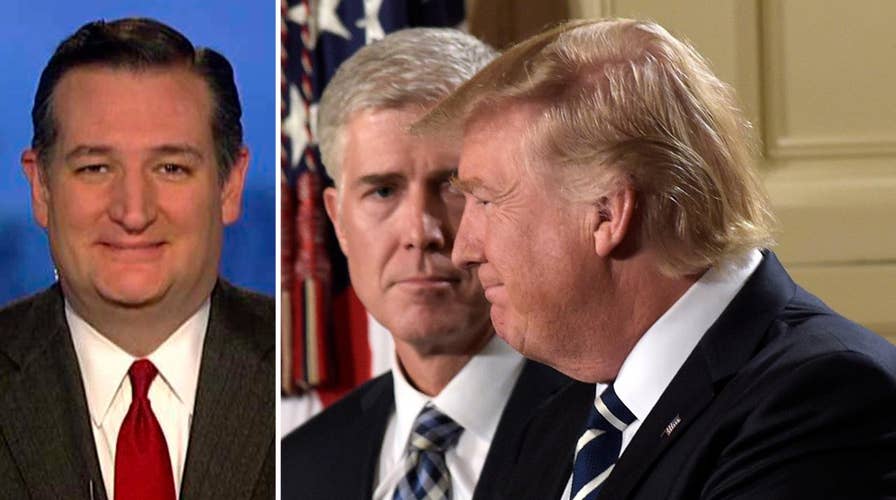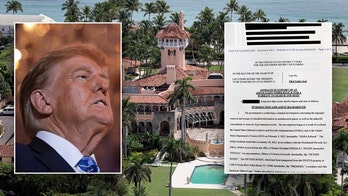Ted Cruz talks frustration over Democrats in Trump 'denial'
Republican senator weighs in on pushback over President Trump's agenda on 'Fox & Friends'
Sen. Ted Cruz, R-Texas, said in an interview Tuesday that “all procedural options are on the table” when it comes to confirming a strong conservative to replace Justice Scalia on the Supreme Court.
President Trump nominated federal Judge Neil Gorsuch to the Supreme Court on Tuesday, choosing a jurist widely seen by conservatives as a fitting successor to the late Scalia – and touching off what is sure to be a fierce confirmation battle with Senate Democrats already vowing resistance.
“The Democrats are not going to succeed in filibustering the Supreme Court nominee,” Cruz told Politico. “All procedural options are on the table. The bottom line is we will confirm a strong conservative to replace Justice Scalia.”
Senate Minority Leader Chuck Schumer, D-N.Y., will oppose any nominee outside the mainstream. He will likely decide whether to try to lead an effort to block, or filibuster, based on the nominee's performance in confirmation hearings and feedback from his Democratic caucus, including the 10 senators who are up for re-election in states that Trump won last year.
The advantages of trying a filibuster are clear - make Republicans work to find the 60 votes needed to end it, including at least eight Democrats, and as a result, delay or block the nomination. Republicans hold a 52-48 majority.
But there are also downsides. Democrats running for re-election next year in states Trump won in 2016 could face political consequences for their party's attempted obstruction. And if Republicans change the rules and eliminate the filibuster altogether, Democrats would have lost their most powerful weapon in future Supreme Court fights.
Republicans did not try to filibuster either of former President Barack Obama's Supreme Court nominees. The only filibuster attempt in the past few decades was by Democrats against Justice Samuel Alito, nominated by former President George W. Bush. The effort failed and Alito was confirmed.
If Republicans are unable to secure enough Democratic votes for Trump’s pick, they can change the rules and curb the filibuster.
Former Senate Majority Leader Harry Reid, D-Nev., did that for lower court nominees and other nominations in 2013.
Trump has called on McConnell to kill the filibuster if Democrats resist his pick, but McConnell said the decision is not up to Trump.
"That’s not a presidential decision. That’s a Senate decision," McConnell told Politico.
The Associated Press contributed to this report





